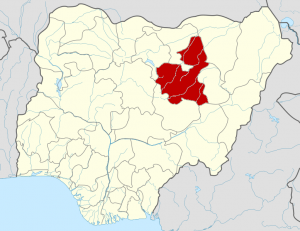Netanyahu projected to win Israeli election, but exit polls suggest bloc just short of majority

But even if the final results bear out these projections from Israel’s three main news channels, Netanyahu will still need to find partners to form a coalition government with a majority in the 120-seat parliament.Just after polling stations closed across Israel at 10 p.m. local time (3 p.m. ET), the Israeli TV stations flashed the result of their individual exit polls — all showing Netanyahu’s right-wing Likud party ahead of former military chief, Benny Gantz’s centrist Blue and White Party.Exit polls in Israel, as elsewhere, come with a disclaimer. Sometimes they prove to be extremely prescient, while other times they are woefully wide of the mark. Even so, politicians and voters alike still take them seriously and watch them closely.The poll for Kan News, Israel’s public broadcast network, projects Likud winning 36 seats and Netanyahu’s main challenger, Gantz’s Blue and White Party, winning 33 seats.Israel’s Channel 12 News projection shows Likud taking 37 seats and Blue and White with 33, while Channel 13 News forecasts 37 seats for Netanyahu’s party and 32 seats for Gantz’s.Israel’s right-wing parties claimed victory after the exit polls projected a bloc led by Netanyahu — made up of his Likud, the hardline right-wing Yamina, and the two religious parties — on track to secure 60 seats.A statement from Likud said the prime minister had spoken Monday evening with all party leaders in what the statement called the “national bloc” and they had “agreed to form a strong national government for Israel soon.”It is not clear at this stage from where Netanyahu will take the extra seat, or seats, he would need to get a majority in parliament.Back in April’s election, the same bloc of parties secured 60 seats in the Knesset but he was still unable to form a government.Twenty-nine parties contested this election. It is expected that either eight or possibly nine parties should make it over the 3.25% threshold required to win representation in the 120-seat Knesset.Turnout has been identified by all the parties as key to success in this election.Gantz posted a video at the end of his campaign in which he told supporters to get four friends and take them to the polling station to vote for his Blue and White Party. Otherwise, he warned, “it is a fourth round of elections.”After casting his ballot, Netanyahu also urged Israelis to go and vote. “This is a democracy. You have a great right that you should exercise,” he said.The Central Election Commission posted updates through the day on voting numbers, which quashed fears of voter apathy. With two hours of voting left, Israeli election turnout was at a 20-year highTurnout stood at 65.5% at 8 p.m. in Israel (1 p.m. ET) Monday with just two hours of voting left, according to the commission. That compares with a figure at the same point in the September 2019 election of 63.7%. It’s the highest figure at this stage of an election since the poll in 1999.Among the more than 10,000 polling stations up and down Israel were 16 tents erected in parking lots, which had been specially set up for voters under self-quarantine over a heightened risk of the coronavirus.As the coronavirus outbreak continues across the world, affected voters were under instructions to drive themselves solo to the locations, where they were met by election officials dressed in full protective gear.More than 5,000 Israelis are currently under instructions to self-quarantine.Israel’s third election in less than a year reflects a political system in deadlock.Following the last poll in September, both Netanyahu and Gantz were given the chance to try to form a government but neither man was successful in building a coalition with a 61-seat majority. Gantz refused point-blank to sit in a government with Netanyahu due to the charges against the prime minister, while Netanyahu refused to go second in any rotating prime ministership with Gantz.This third campaign saw barbs traded between the two leaders and the release of several secret recordings aimed at damaging both the main campaigns, though particularly that of Blue and White. Casting his vote Monday, Israeli President Reuven Rivlin castigated the country’s politicians.”We don’t deserve another awful and grubby election campaign like the one that ends today, and we don’t deserve this never-ending instability. We deserve a government that works for us.”As the exit polls suggest, the two largest parties are likely to be Netanyahu’s Likud and Gantz’s Blue and White.Netanyahu is seeking his fifth term as Israel’s prime minister — he is already the country’s longest-ever serving leader, having surpassed David Ben-Gurion’s 4,875 days in office last summer.Even though he has been under criminal investigation for several years, it was only in January that he was formally indicted on charges of bribery and fraud and breach of trust. He denies the accusations, and there was little during the campaign to suggest the indictments have had an impact on voters. Those Israelis who support him fully accept his complaints that the indictments are a witch hunt pursued by a liberal elite. And those Israelis who dislike the prime minister have been firm in that belief for years now.Another issue during the campaign was the Trump administration’s “Deal of the Century.” The US president delivered his “Peace to Prosperity” plan at the end of January, with Netanyahu standing next to him at the White House. The proposal effectively gives US approval to Israeli annexation of all Jewish settlements in the West Bank, along with the Jordan Valley. Netanyahu has embraced the plan and has talked about a “window of opportunity” to deliver on it, widely seen as meaning before the US presidential election in November. For his part, Gantz also welcomed the plan but said annexation should happen with international coordination.Perhaps the biggest immediate electoral effect of the Trump plan has been to motivate Israel’s Arab community to vote. The Kan News exit poll projects the Joint Arab List — an alliance of the four main Arab parties — on track to win 15 seats. List leader Ayman Odeh hailed it as the best result ever for Arab parties in Israeli elections.Hopes are that more than 90% of the vote will be counted by 7 a.m. local time (12 a.m. ET) Wednesday, so the final arrangement of seats should be fairly clear by that point.Next Sunday, all party leaders who have achieved representation in parliament are expected to begin consultations with Israel’s president over who should get first shot at building a coalition.The president will then formally ask one of the leaders to start coalition talks — on all but one occasion it has been the leader of the largest party — and they will then have a maximum of six weeks to agree on the shape of the next government. But as we have seen twice now, that might well prove impossible, paving the way for a fourth general election in late summer.







